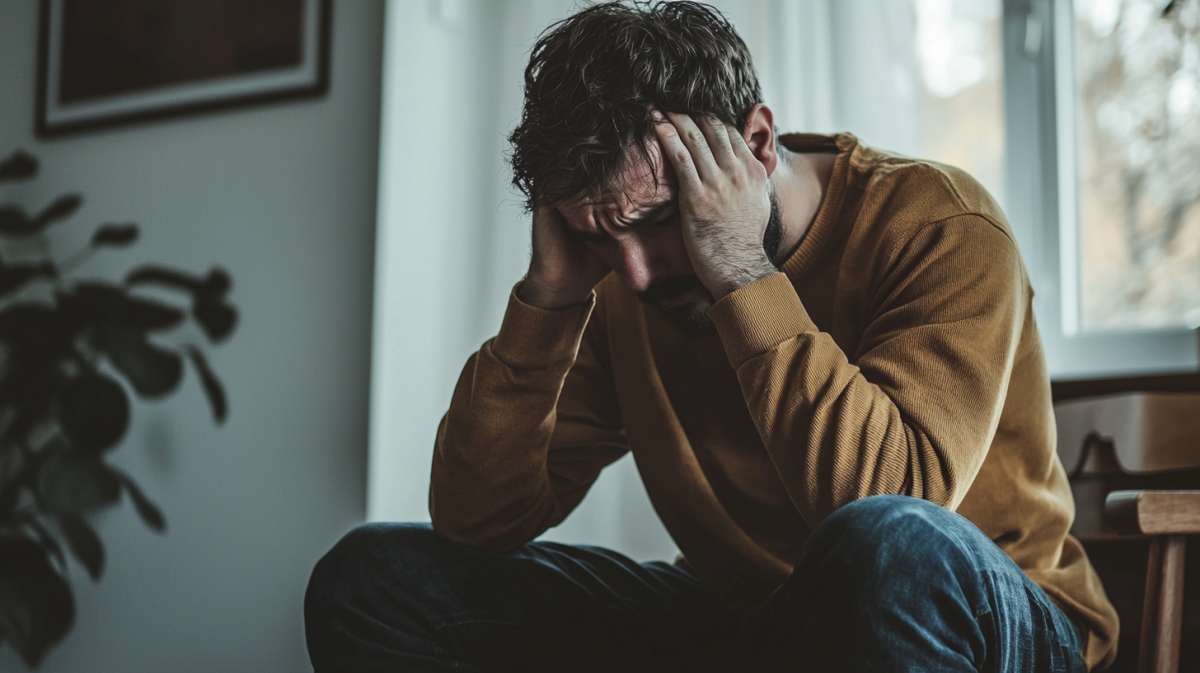It’s always hard when we lose something, whether that be a pet, loved one, or relationship. Even losing important items or memorabilia can send us into grief. It’s a normal part of life, but that doesn’t make it easy.
As I continue to take care of my Father in Law, the inevitable conclusion of this episode of our lives is unlikely to be a happy one. This isn't to say that I need to prepare for it tomorrow, but planning for life changes is something that every man needs to do better at. Far too many of us think that we are imortal and that we can change anything we set our minds to doing. This is true for many things in life but LIFE is one of those things that is far outside of our ability.
This article contains some of the advice that people have shared with us and hopefully will make grieving easier for you as we cover a few of the things you can do to grieve in a healthy way. The following will help you whether you’re mourning the loss of a loved one or navigating the five stages of divorce grief.
Spend Time With Those Who Understand
It’s easy to feel alone as you mourn. It’s not uncommon to meet people who have yet to lose something or someone incredibly important to them, and who therefore don’t understand how painful grieving is. This is why finding people who can relate and care about you is so important.
Surrounding yourself with people who can help you through your situation will make it easier. Maybe your support group is your family, but it could also be a friend or two.
If these people aren’t enough then consider reaching out to a support group full of people grieving situations similar to yours. They understand and care and will do their best to help you grieve. Don’t hesitate to seek out help; no one should have to grieve alone.
Give Yourself Time
Grieving takes time, but you have a lot of things to do. You still have to perform well at work or school for example.
One of the best things you can do for yourself is to be patient and give yourself time to grieve. This means setting aside time each day to think about what you have lost and let yourself react.
You could look back at a photo album depicting some of their best moments, talk to them as though they were there or simply curl up on the floor and cry. Don’t worry about whether you’re doing it “right” or how other people might react.
These twenty to thirty minutes are yours and yours alone. You may need weeks or even months of this time to completely move on but you will. Just give yourself the time you need. And you’ll see yourself improve soon enough.
Plan Ahead
Setting yourself time to grieve may help you get through the average day and may make your worst ones better, but it can’t shield you from the absolute worst. You need to plan ahead for the incredibly painful days. These may be the anniversary of your loss or of a positive moment in life, such as a wedding anniversary.
Maybe a special holiday you shared with a loved one you’ve lost is approaching. Whatever it is, you need to prepare yourself for it. Emotion may not be overwhelming until the day arrives or it could wait until a random point in the day to cripple you with memories and tears. You’ll likely see these days coming in advance, and the best thing to do is to begin planning.
Make sure you spend this time with family, friends or a support group. Take the day slowly and work through your emotions and memories as they come. It won’t prevent the reactions, but it will make them easier.
Let Yourself Feel
All of the things listed so far have one thing in common, and it's incredibly difficult to do: feel your feelings. We want to be happy or content so much that we’ve deemed anger, sadness, confusion and more as bad emotions that should be avoided.
While it’s true that they don’t feel good, that doesn’t make them bad. Ignoring them, especially when grieving a loss, is actually harmful. It’s okay to let yourself cry when you feel sad or to yell when you’re angry so long as you’re not taking your emotions out on an innocent person. This is why the grieving time mentioned earlier is so important. It gives you time to do whatever you need to without interruption for a while.
Surrounding yourself with people who care gives you people to talk through your emotions with. Planning ahead allows you to understand when these feelings will be at their strongest and prepare accordingly.
Feeling your feelings is a necessary part of life but is even more crucial when grieving. Failing to do so will lead to more emotional instability and harm you more than the feelings ever could in the long run.
Healing Over Time
As you grieve, you’ll likely embrace and remember the bad times but don’t forget to smile at the good times, too. Many people grieve not by focusing on what they’ve lost but by celebrating that it happened in the first place.
Even if this isn’t what you need, don’t ignore the good memories. They remind you that the sun will shine again, even if it’s cloudy and gloomy right now.
